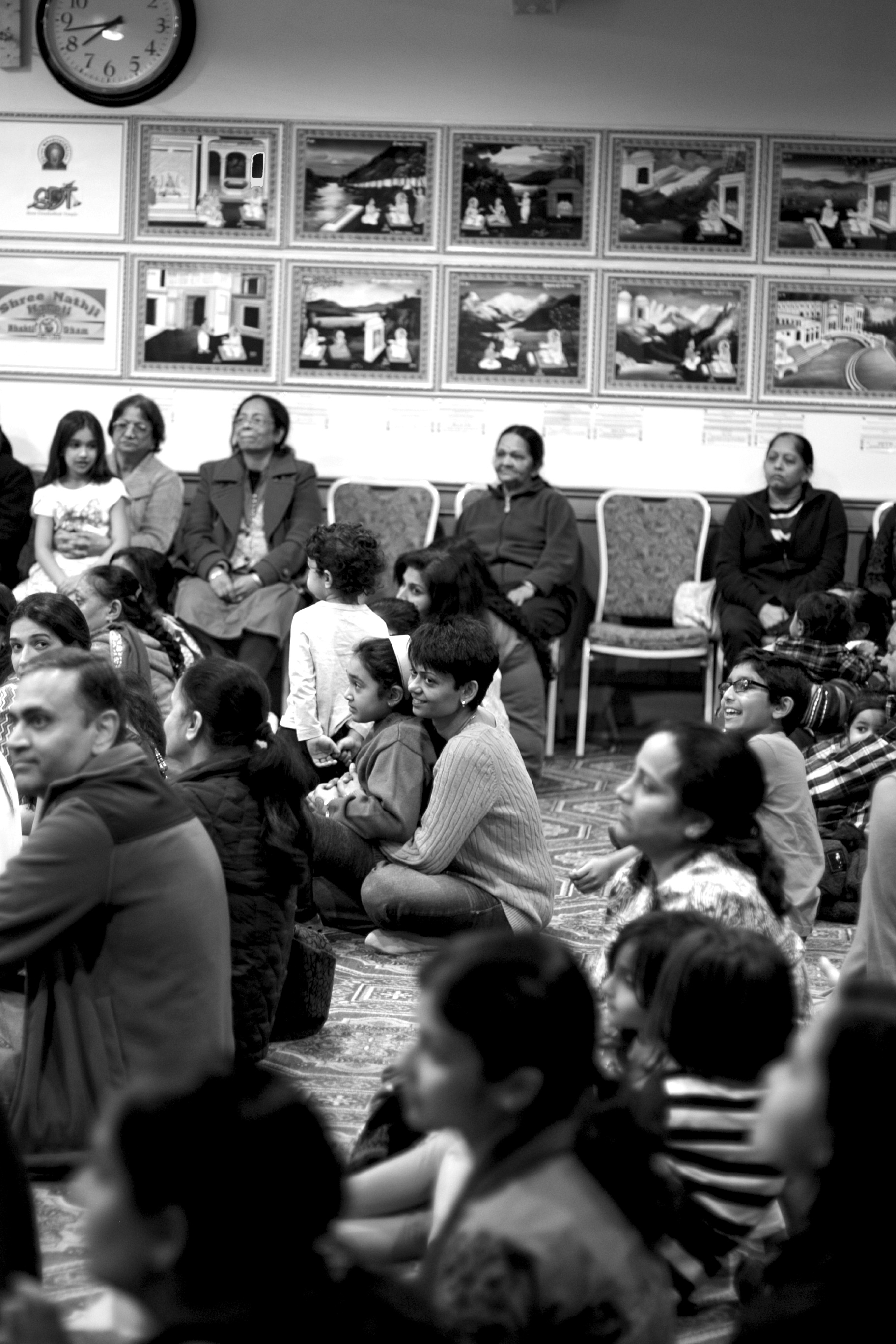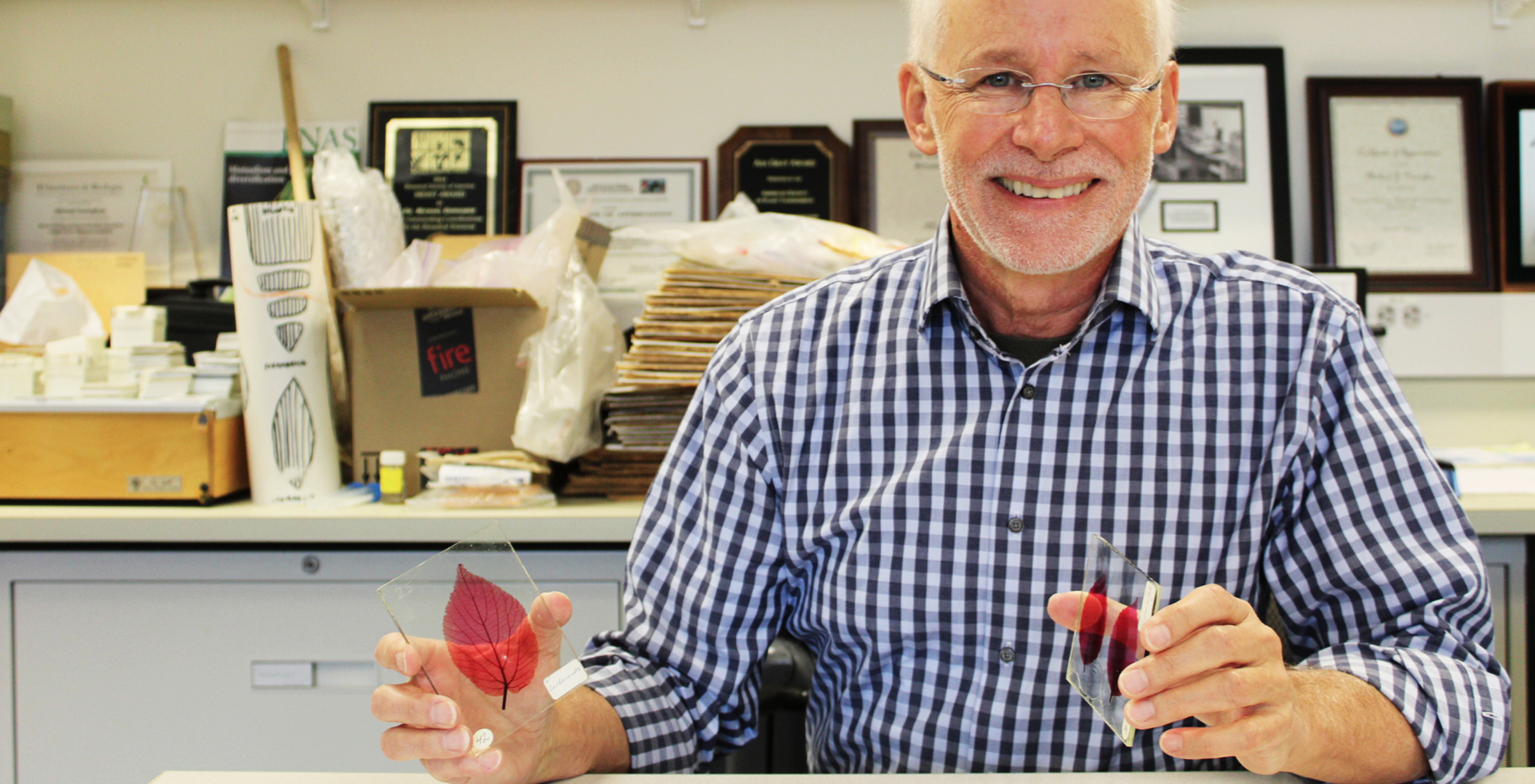
New Haven’s only Hindu temple, Shree Nathji Haveli, was once a banquet hall. Since opening in October 2010, the space has been converted into something of a haven for regional Hindus, who previously had to travel to New Jersey or New York to attend services. This is not uncommon for Hindu Americans; although I’m not particularly religious, my family often drove an hour to our temple during my childhood in Houston. We had no local center for cultural life like Shree Nathji Haveli, which offers six prayer services a day to an expanding three-hundred-person congregation, one of the four hundred temples in the United States that serve the seven-tenths of one percent of the population that is Hindu, according to the Pew Research Center.
Prakash Bhai, meaning “brother Prakash” in Hindi, is a temple trustee. He has a soft-spoken enthusiasm, greying hair, and a mustache. When I visited the temple, he welcomed me into the interior, where statues and prayer spaces still clash with the rusty tables and chairs piled against the walls, remnants of the banquet hall. The old main stage has been refurbished as a brightly adorned pulpit, where a statue of Shree Nathji—the younger manifestation of the Hindu deity Krishna—stands enveloped by white marble.
At a weekly Sunday Paathshala, Hindu education for children in the community, a wiry 7-year-old named Vikram stood on stage with his PowerPoint: “The Logic Behind Hinduism.” He presented in front of forty fidgety young peers, reciting information with little hesitation.
As Vikram spoke, Prakash Bhai praised the greater New Haven community’s response to the temple. He could only recall a single moment of strife in local relations. At an early zoning meeting, one community member called the temple a mosque, conflating Hinduism with Islam, a mistake that indicated ignorance at best and general discomfort at worst. An awkward silence ensued, broken only when a temple representative corrected the misnomer.
“It’s the way it is,” he said, shrugging, when I asked him if he found the mistake offensive. It is likely not the first time it has happened, but locals are learning. Shree Nathji Haveli continues to host annual community meetings where representatives from the New Haven Police Department and the New Haven city government meet temple practitioners and explore the space. Prakash Bhai considers these meetings moments of genuine cultural exchange.
Yet other community members, like Yash Agarwal, a New Haven resident and temple volunteer, do not share this optimism. He said, frowning, that Americans don’t understand Hinduism: “I can understand that they don’t want another religion to take over, but Hinduism isn’t about overtaking; it’s about learning about the good in all.”
…statues and prayer spaces still clash with the rusty tables and chairs piled against the walls, remnants of the banquet hall.
Part of Paathshala lessons attempt to prime the children for challenging situations in Hindu life. Temple volunteers ask tough questions about how one should respond to a bully, or how, given today’s climate of rising Islamophobia, to explain the difference between Hinduism and Islam and the importance of learning about both religions. The question isn’t interested in the theological distinctions between the two faiths, but rather how one should explain those distinctions to someone else.
“The kids are the ones that love coming,” said Prakash Bhai as he observed the scene. “They finish their chores just so they can come earlier.” Although Prakash Bhai seems to have a rosy picture of Hindu life in New Haven, his conviction in the weekly Paathshala lesson holds true. The kids are engaged. They race to ask questions, interrupting each other.
The old main stage has been refurbished as a brightly adorned pulpit, where a statue of Shree Nathji—the younger manifestation of the Hindu deity Krishna—stands enveloped by white marble.
This is a problem of the temple’s age. It is only six years old, meaning current teenagers have not grown up with the Shree Nathji Haveli community. Prakash Bhai is confident that the children enrolled in the current Paathshala class will continue to attend as teenagers.
After Vikram ended his presentation, Prakash Bhai took the stage. He leaned into the microphone and announced that a temple-wide Easter egg hunt would be starting—now.
Immediately, the old banquet hall erupted in chaotic screams and laughter as the children raced around the room, running into each other and their parents’ legs. Prakash Bhai smiled at my obvious confusion. Easter?
Even Vikram dropped his professional demeanor. He raced around the room, snatched an egg from below a table, and placed it at the feet of a statue of Shree Nathji.
“We’re part of America now,” he said. “This is our culture, too.”
Even Vikram dropped his professional demeanor. He raced around the room, snatched an egg from below a table, and placed it at the feet of a statue of Shree Nathji.


